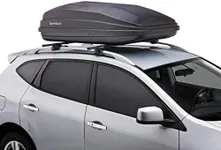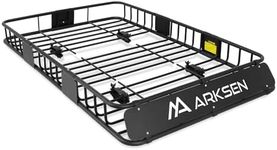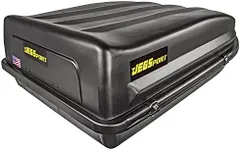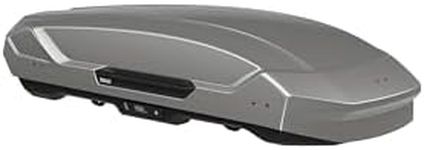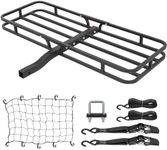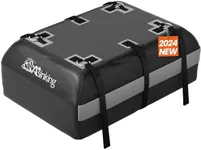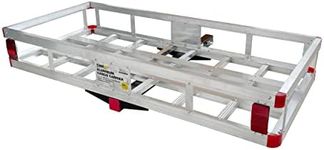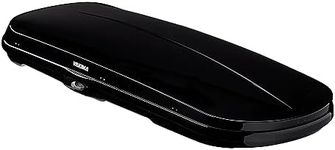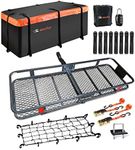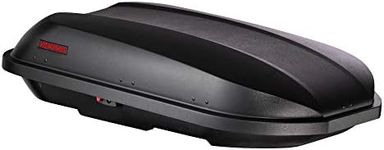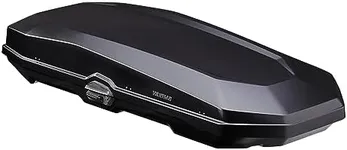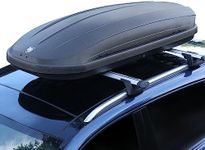Buying Guide for the Best Cargo Carriers
Choosing the right cargo carrier can make a big difference in your travel experience. Whether you're going on a road trip, camping, or just need extra space for your gear, a cargo carrier can provide the additional storage you need. To find the best fit for you, it's important to consider several key specifications. These will help you determine which cargo carrier will best meet your needs and ensure that your belongings are transported safely and securely.CapacityCapacity refers to the amount of space available inside the cargo carrier, usually measured in cubic feet or liters. This is important because it determines how much you can carry. If you often travel with a lot of gear, you'll need a larger capacity. For occasional use or smaller loads, a smaller capacity will suffice. Consider what you typically need to transport and choose a capacity that matches those needs.
TypeCargo carriers come in different types, such as roof-mounted, hitch-mounted, and trunk-mounted. Roof-mounted carriers are great for maximizing space but can affect your vehicle's aerodynamics. Hitch-mounted carriers are easier to load and unload but require a hitch receiver. Trunk-mounted carriers are more accessible but may limit access to your trunk. Think about your vehicle type and how you plan to use the carrier to decide which type is best for you.
MaterialThe material of the cargo carrier affects its durability and weight. Common materials include hard-shell plastic, which is durable and weather-resistant, and soft-shell fabric, which is lighter and easier to store when not in use. If you need a carrier that can withstand harsh weather conditions, a hard-shell option might be better. For lighter loads and easier storage, a soft-shell carrier could be more suitable.
Security FeaturesSecurity features such as locks and reinforced zippers are important for protecting your belongings. If you plan to leave your vehicle unattended or travel through areas where theft is a concern, look for carriers with robust security features. This will give you peace of mind knowing that your items are safe.
Ease of InstallationEase of installation refers to how simple it is to attach and detach the cargo carrier from your vehicle. Some carriers come with tool-free installation, while others may require more effort and tools. If you plan to frequently install and remove the carrier, look for one that offers easy installation. This will save you time and hassle.
AerodynamicsAerodynamics affects how the cargo carrier impacts your vehicle's fuel efficiency and handling. More aerodynamic carriers reduce wind resistance and can help maintain better fuel economy. If you plan to use the carrier often or for long trips, consider an aerodynamic design to minimize the impact on your vehicle's performance.
Weather ResistanceWeather resistance is crucial if you plan to use the cargo carrier in various weather conditions. Look for carriers that are waterproof or water-resistant to protect your belongings from rain, snow, and other elements. This is especially important for long trips or if you carry items that can be damaged by moisture.
